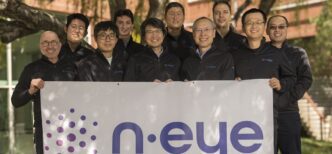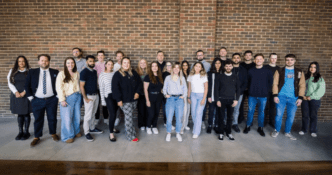In the high-stakes world of AI startups, few have stirred up as much attention as Artisan. The AI sales agent startup, led by 23-year-old founder and CEO Jaspar Carmichael-Jack, has just closed a $25 million Series A round. The fresh funding, announced exclusively to TechCrunch, was led by Glade Brook Capital, with support from Y Combinator, Day One Ventures, HubSpot Ventures, Oliver Jung, Fellows Fund, and others.
Artisan first made headlines in 2024 when it emerged as one of Y Combinator’s most promising graduates. It followed up its demo day buzz with a hefty $12 million seed round in September, cementing its status as a serious contender in the growing AI-powered sales automation space.
Yet, the road to success hasn’t been without turbulence. From public backlash to product stumbles, Carmichael-Jack and co-founder Sam Stallings, a former IBM product manager, have navigated a whirlwind of challenges while scaling Artisan’s AI-driven platform.
The Viral Campaign That Sparked Controversy (and Clicks)
Artisan is best known for its provocative “Stop Hiring Humans” campaign—an attention-grabbing stunt that triggered everything from viral social media debates to even death threats. The campaign, while divisive, catapulted the startup into the spotlight.
On April 1st, in true prankster fashion, Carmichael-Jack jokingly announced he was stepping down, replaced by an “AI CEO.” The April Fool’s joke fooled many, but Carmichael-Jack remains at the helm—and still very much human.
Despite the catchy slogans, Artisan’s message isn’t as anti-human as it sounds. “Human labor becomes more valuable when paired with AI,” says Carmichael-Jack. Artisan currently employs 35 people and is actively hiring 22 more, including roles in sales. The team also recently welcomed a new CTO, Ming Li, whose experience spans Deel, Rippling, TikTok, and Google.
AI That Doesn’t Always Get It Right
Artisan operates in the fast-evolving AI SDR (Sales Development Representative) market—a niche filled with potential but plagued with product reliability issues. Like its competitors, Artisan faced early customer churn and credibility concerns. The company’s initial product, Ava, struggled with accuracy and hallucinated details in cold emails, earning low response rates.
“We had extremely bad hallucinations when we first launched,” Carmichael-Jack admits. But over the last year, Artisan says it has turned things around. Thanks to tighter prompts and a partnership with AI model provider Anthropic, Artisan redesigned Ava to reduce errors drastically. According to the company, Ava now only hallucinates once in every 10,000 emails.
Ava now serves over 250 clients and helps generate $5 million in annual recurring revenue, the company claims.
New AI Agents on the Way
Artisan isn’t stopping at outbound sales emails. The company is developing two more AI-powered assistants—Aaron, designed to handle inbound messages, and Aria, a meeting management agent. Both are expected to roll out by the end of 2025.
As the product line grows, Artisan is also exploring creative ways to boost adoption and reduce risk for customers. That includes launching a success-based pricing model through a partnership with Paid.ai, a billing startup founded by Outreach co-founder Manny Medina. With this model, clients pay only when they see real results—like qualified responses—instead of committing to traditional long-term contracts.
Qualifying Customers Is Key
Artisan’s team has also learned some tough lessons about customer fit. Not every business is ready for AI SDR tools. Some industries, like offshore development agencies, simply don’t generate the right type of leads.
“We sold to a lot of the wrong customers in the beginning,” Carmichael-Jack says. “You have to qualify pretty heavily.” Some clients get too few replies. Others get flooded with poor-quality leads that require human teams to sift through the noise. The sweet spot, he explains, is around a 1% response rate.
Artisan now targets its outreach more intelligently, combining internal data with external signals from fundraising news, social media activity, and other sources. One of its competitive advantages is a proprietary database of brick-and-mortar businesses, helping refine targeting beyond generic email blasts.
Balancing Automation and Human Insight
Despite its bold messaging, Artisan’s mission is not to erase human jobs but to augment them. The startup is leaning into a more nuanced vision—where smart AI agents handle the tedious outreach work, and people focus on what they do best: building real relationships.
“We should only be selling to people if they’re getting value,” says Carmichael-Jack. “If they’re not, we shouldn’t be charging them.”
As Artisan continues to grow, it’s clear the startup is evolving just as quickly as the AI sales landscape itself.













